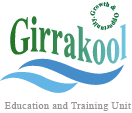19
SeptemberTop Addiction Treatment Guide!
Introduction:
Alcohol detachment is a condition that takes place when people abruptly stop or dramatically reduce their alcoholic beverages intake after extended times of heavy drinking. It is a complex and potentially life-threatening condition that affects many people global. This report aims to offer a thorough overview of alcohol withdrawal, including its symptoms, treatment plans, and administration strategies.
Outward indications of Alcohol Withdrawal:
The onset and seriousness of alcoholic beverages withdrawal symptoms differ among individuals, dependent on facets for instance the quantity and extent of drinking and ones own general health. Typical observable symptoms include tremors, anxiety, frustration, sickness, vomiting, sleeplessness, increased heart rate, and sweating. In extreme instances, individuals may go through hallucinations, seizures, or delirium tremens (DTs), a potentially deadly problem described as agitation, confusion, hallucinations, and fluctuating amounts of consciousness.
Treatments:
Whenever dealing with alcohol detachment, it is vital to seek medical assistance and help. The primary goal of treatment solutions are to properly handle detachment symptoms, prevent complications, and facilitate the change to sobriety. Medical experts can assess the severity of symptoms and determine the right degree of attention. In mild instances, outpatient therapy can be administered, while more serious instances may require hospitalization.
Medicines commonly used in liquor withdrawal treatment consist of benzodiazepines, that assist lower anxiety, relieve symptoms, and give a wide berth to seizures. Various other medications eg antipsychotics, anticonvulsants, and beta-blockers might utilized to manage certain signs or co-occurring conditions. Furthermore, nutritional vitamins, especially thiamine (vitamin B1), in many cases are prescribed to avoid or treat possible inadequacies of excessive alcohol consumption.
Management Techniques:
In addition to health interventions, different methods can be employed to handle alcoholic beverages detachment effectively.
1. Supportive Care: Providing a supporting environment promotes a sense of safety and convenience. This can include ensuring appropriate nutrition, hydration, and rest, plus keeping track of important signs and handling any medical complications that'll occur during withdrawal.
2. Psychotherapy: Seeking mental health support, particularly counseling or psychotherapy, can play a crucial role in addressing fundamental mental or psychological problems that play a role in alcoholic beverages dependency. These interventions help people develop coping strategies, manage triggers, and establish healthy alternatives to alcoholic beverages.
3. Rehabilitation products: participating in rehab programs, such as for example inpatient rehab or outpatient centers, can offer a structured and supporting environment for people seeking long-term data recovery. These programs often incorporate medical treatments, counseling, and peer support to handle the actual, emotional, and social facets of liquor addiction.
4. Follow-up Care: After finishing initial cleansing and treatment, people should still look for ongoing care. This might involve participating in support groups, going to regular treatment sessions, and receiving follow-up evaluations to ensure proper physical and mental health.
Conclusion:
Alcohol detachment is a challenging problem that will require medical attention and comprehensive support. Knowing the signs, treatments, and administration methods can considerably aid in helping people properly navigate the detachment procedure and attain lasting data recovery. By providing appropriate care and resources, we could enhance the outcomes for anyone wanting to conquer alcoholic beverages addiction.

